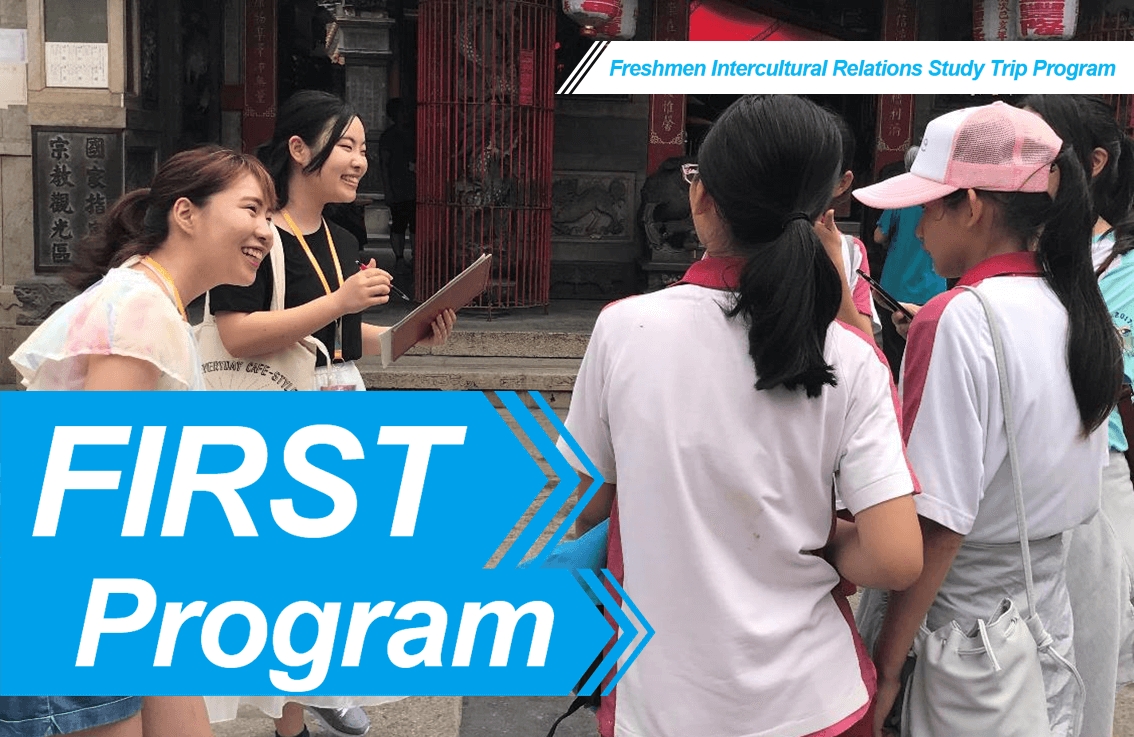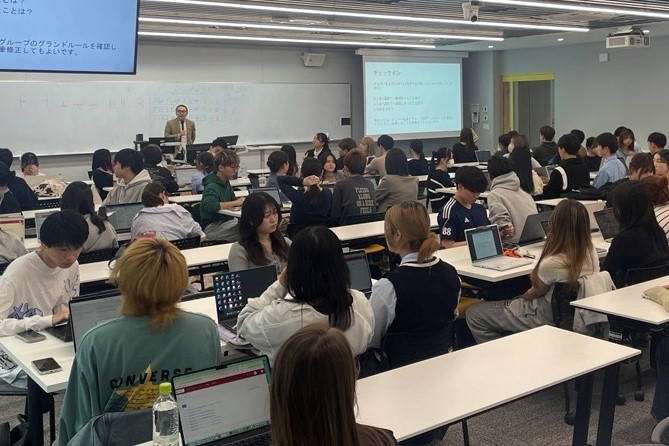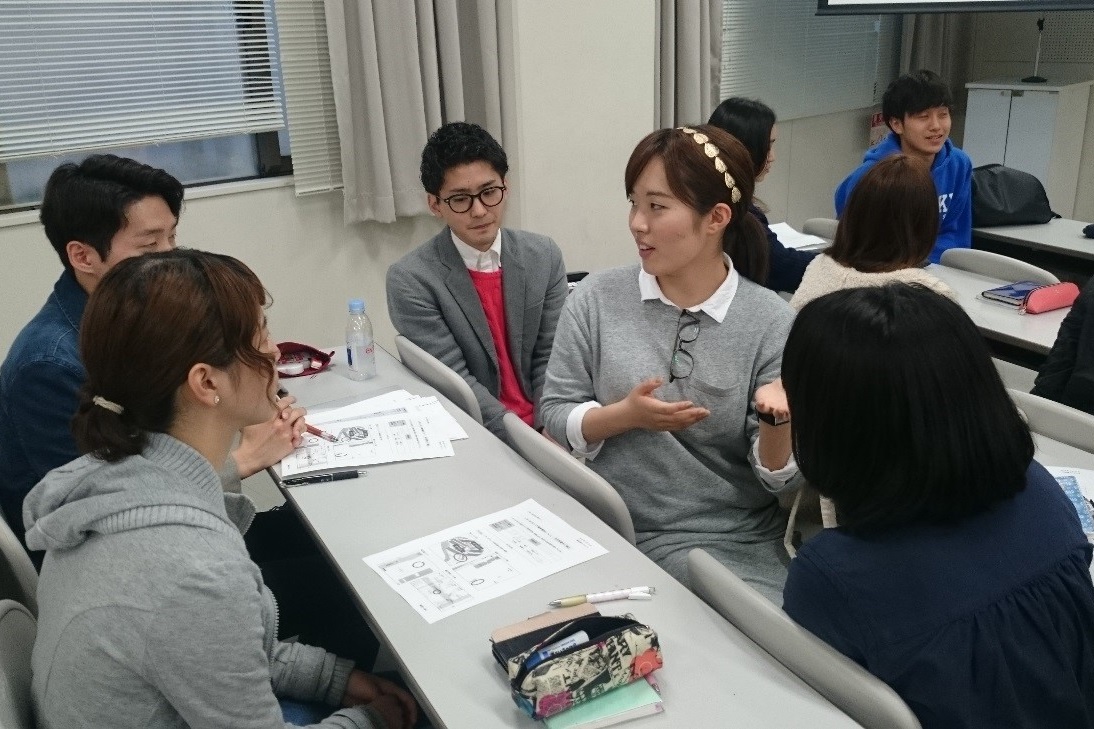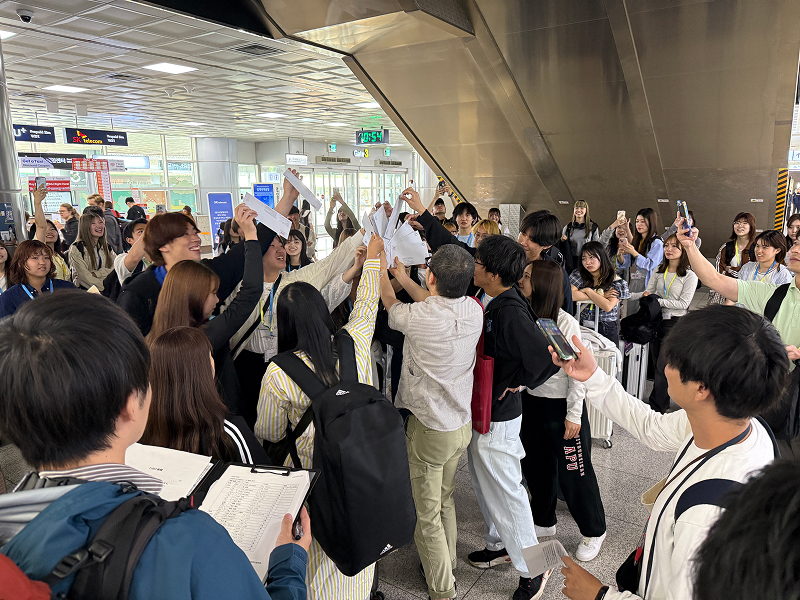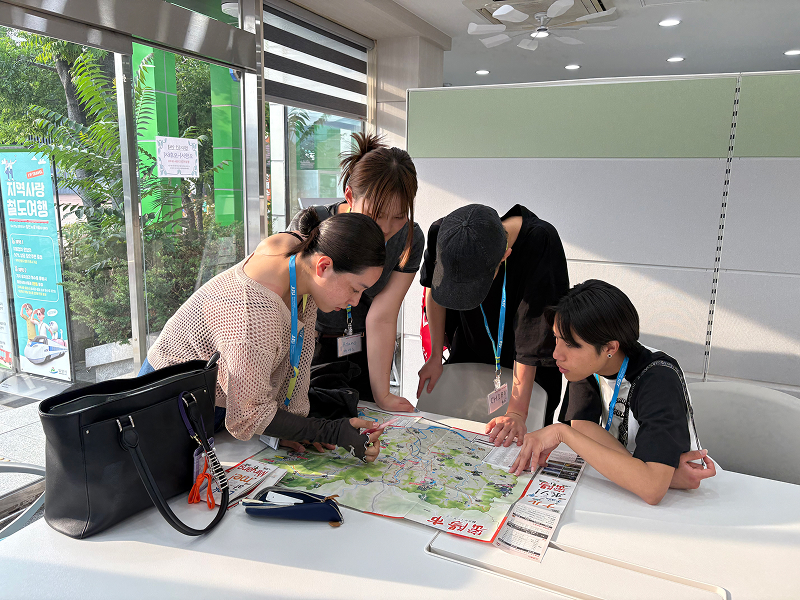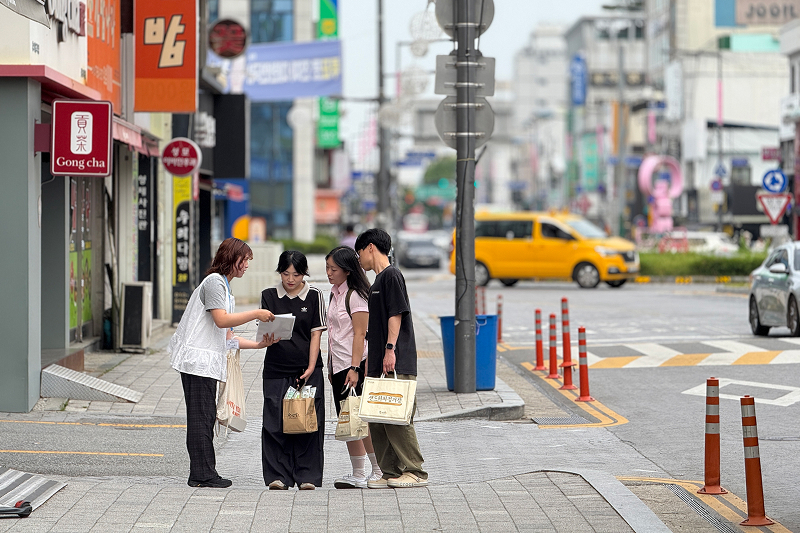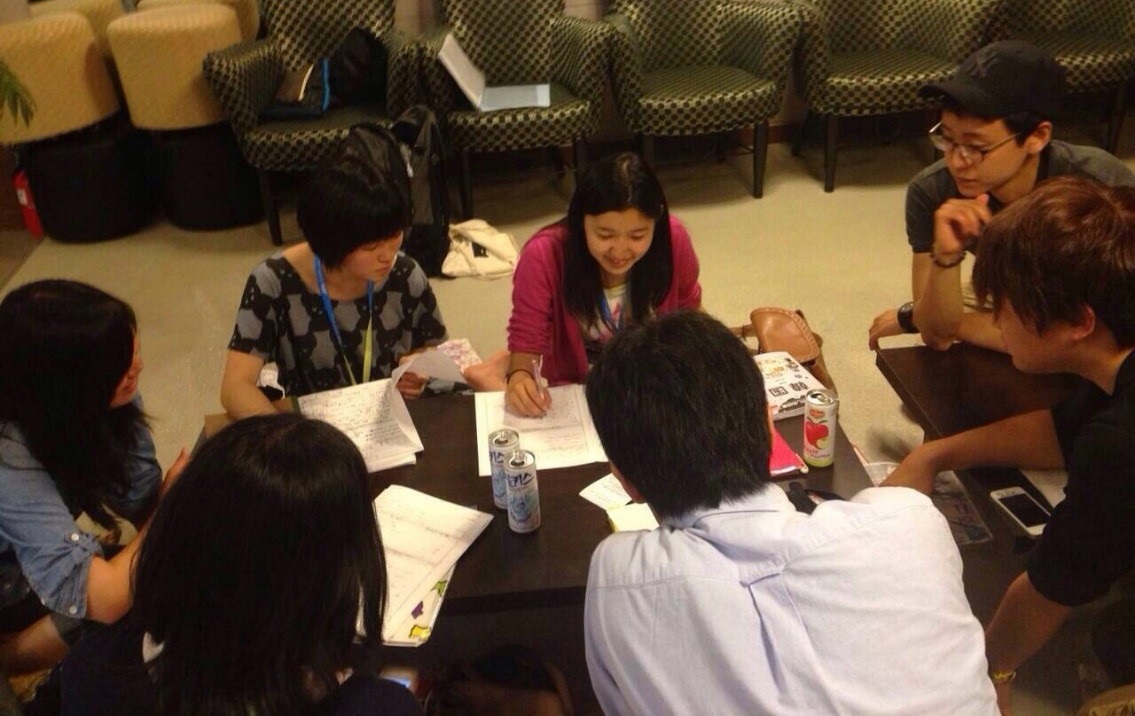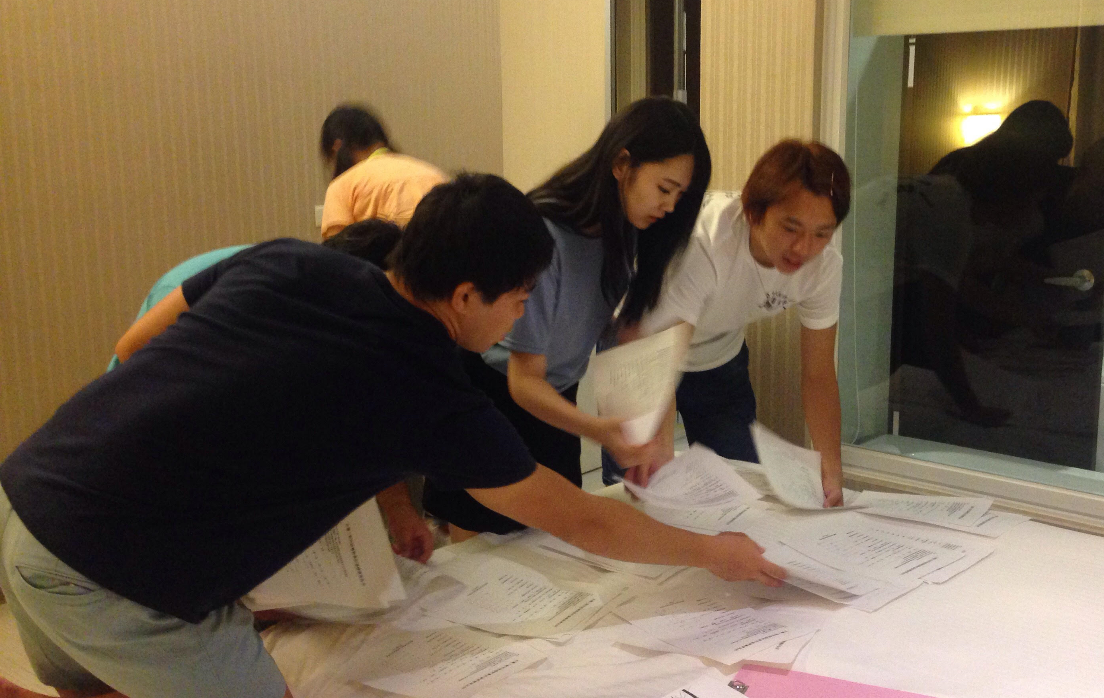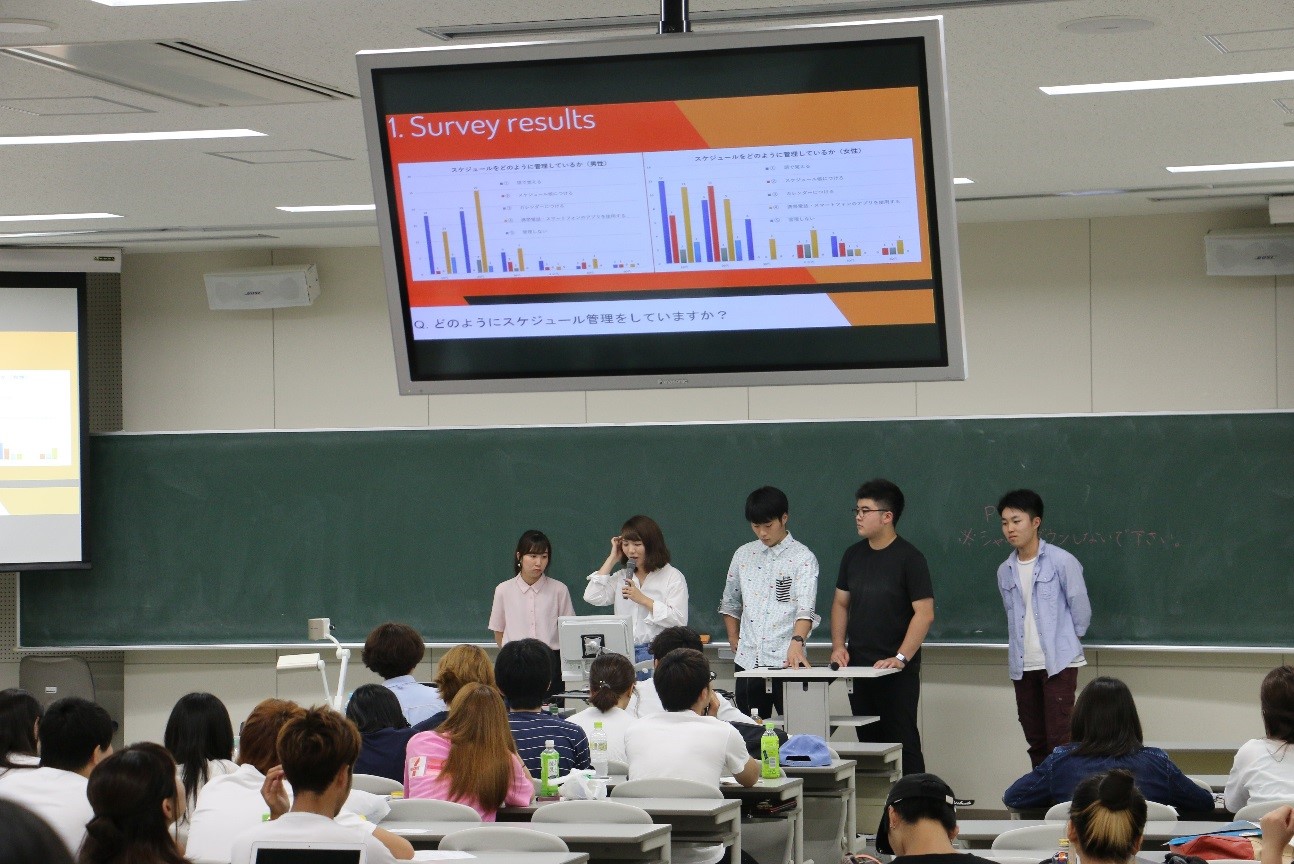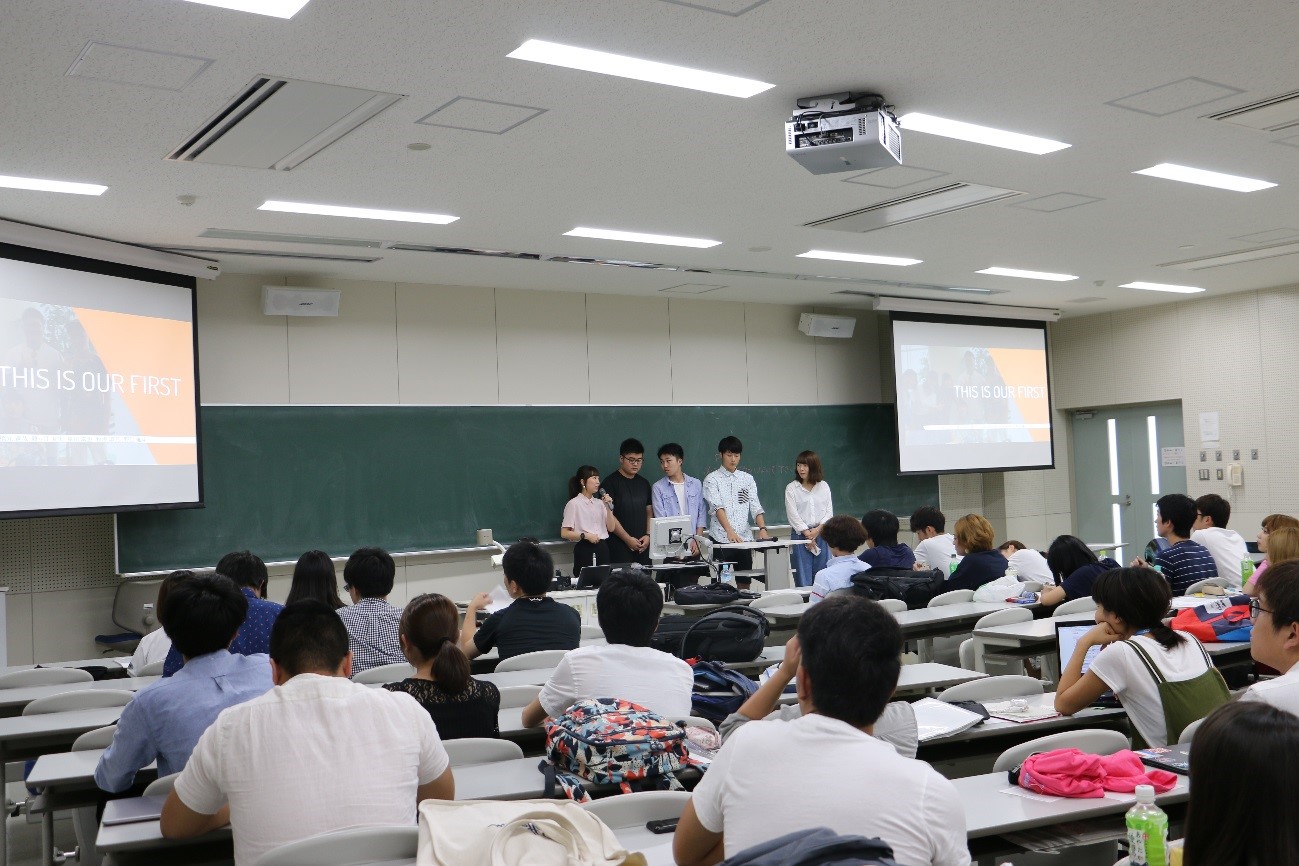FIRST is a short-term, intensive program that offers first-year students the opportunity to spend the break between quarters*1 to travel to other parts of Japan or overseas and directly experience Asian culture and society by interacting with local people and conducting field research. Since it began in AY2007, the popular FIRST Program has attracted a large number of participants.
The biggest feature of the FIRST Program is the hands-on approach to conducting research in an unfamiliar land, culture and language. Divided into small groups, students have to use the language skills they acquire before departing Japan and make their way to a destination decided by drawing straws. Upon arrival they begin their research and carry out surveys based on a theme decided prior to arrival in the country.
In addition to cultivating fundamental research abilities and sensitivity to different cultures, participants will also develop various skills and traits required at APU such as communication, group collaboration, presentation, and willingness to take on a challenge. This program is ideal for students who are interested in interacting with languages and cultures around the world, and the local people of those languages and cultures. It is ideal for students who wish to make the most out of APU’s international learning environment and campus life.
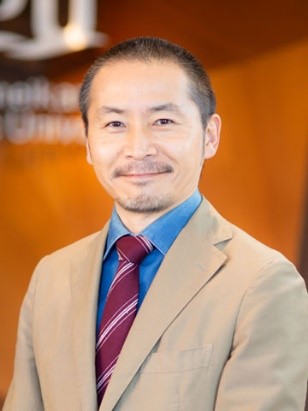
After you enter APU, the FIRST Program will offer you an opportunity to step outside of the multicultural campus, and this will enhance your understanding of what it means to learn at APU while giving you a global perspective. To date, a large number of students have gotten a taste of the outside world by joining this program.
The biggest feature of the FIRST Program is intercultural orienteering. For this activity, students divided into small groups and equipped with only the bare minimum of language training must make their own way to a designated destination in a foreign country. There, they must use teamwork and take initiative to conduct surveys while seeking help from local people. By doing this, students can meet over 300 people, which helps them develop confidence and a proactive attitude. Although senior students including those who are from the destination country accompany the program students, it is the students who take center stage.
Thanks to the FIRST Program, many students develop an interest in studying overseas and go on to join a number of overseas programs, including language training programs, faculty-led field trips, and student exchange programs. At APU, the FIRST Program is your first chance to discover your door to the outside world.
Associate Professor TATEYAMA Hirokuni
Education Development and Learning Support Center
Director, FIRST Program
The FIRST Journey
The program consists of Pre-program sessions, Field research and Post-program session, where students work in small groups.
1. Pre-program sessions (one month prior to departure)
Under the guidance of faculty members, students decide their research topics, receive crisis management guidance, and prepare themselves for departure. They also learn the language and culture of the host country while receiving support from upperclassmen including students from the host country.
2.Field research (4-5 days)
As soon as students arrive in the country, their destinations are decided by drawing straws. Armed with a map, a few words of local language, and teamwork, the groups set off for their respective destinations. During the program, students cannot use their mobile phones, and some of the destinations are small towns that do not normally attract tourists. By overcoming situations in which they cannot rely on what is considered common sense in Japan, the students learn to be resourceful without fearing failure.
3.Arriving at the target destination!
Upon arrival, students begin their research based on the topics decided prior to departure. They will need to approach approximately 600 people to complete their 300-page-plus questionnaires. Often, the students are treated kindly by the locals, but they also experience some tough situations. The people they approach may not be able to speak English, or they may face repeated refusals for assistance. The objective of putting students in these situations is to provide them with non-linguistic communication skills—that is, the ability to make themselves understood without relying on language.
4.At the end of the day
At the end of each day, students hold reflection sessions. They discuss the results they have collected and methods for conducting surveys, share the insights they have gained by undertaking activities in a foreign culture, and consider ways to improve group work. They may not always see eye to eye with each other, but this is also an important learning opportunity.
5.Post-program session
After they return to Japan, the students give presentations on the results of their surveys. Seeing and hearing about what the other groups have discovered helps the students reflect on their own experiences. They provide each other with feedback, and the entire process which serves to bolster a range of skills they can put to use in their future studies at APU.
*1 The quarter system
The APU academic calendar is divided into two semesters, and each semester consists of two quarters (each lasting approximately eight weeks) and an intensive two-month session. Classes held during the quarters are offered twice a week and are completed in two months. This intensive calendar structure ensures positive learning outcomes and encourages students to apply themselves to their studies. Breaks are held between quarters during which time classes are not held. APU offers several intensive study abroad opportunities that students can take advantage of during these quarter breaks.
【 The APU Academic Calendar 】
| Apr |
May |
Jun |
Jul |
Aug |
Sep |
Oct |
Nov |
Dec |
Jan |
Feb |
Mar |
| Spring Semester |
Fall Semester |
| 1st Quarter |
2nd Quarter |
Summer Session |
1st Quarter |
2nd Quarter |
Winter Session |


